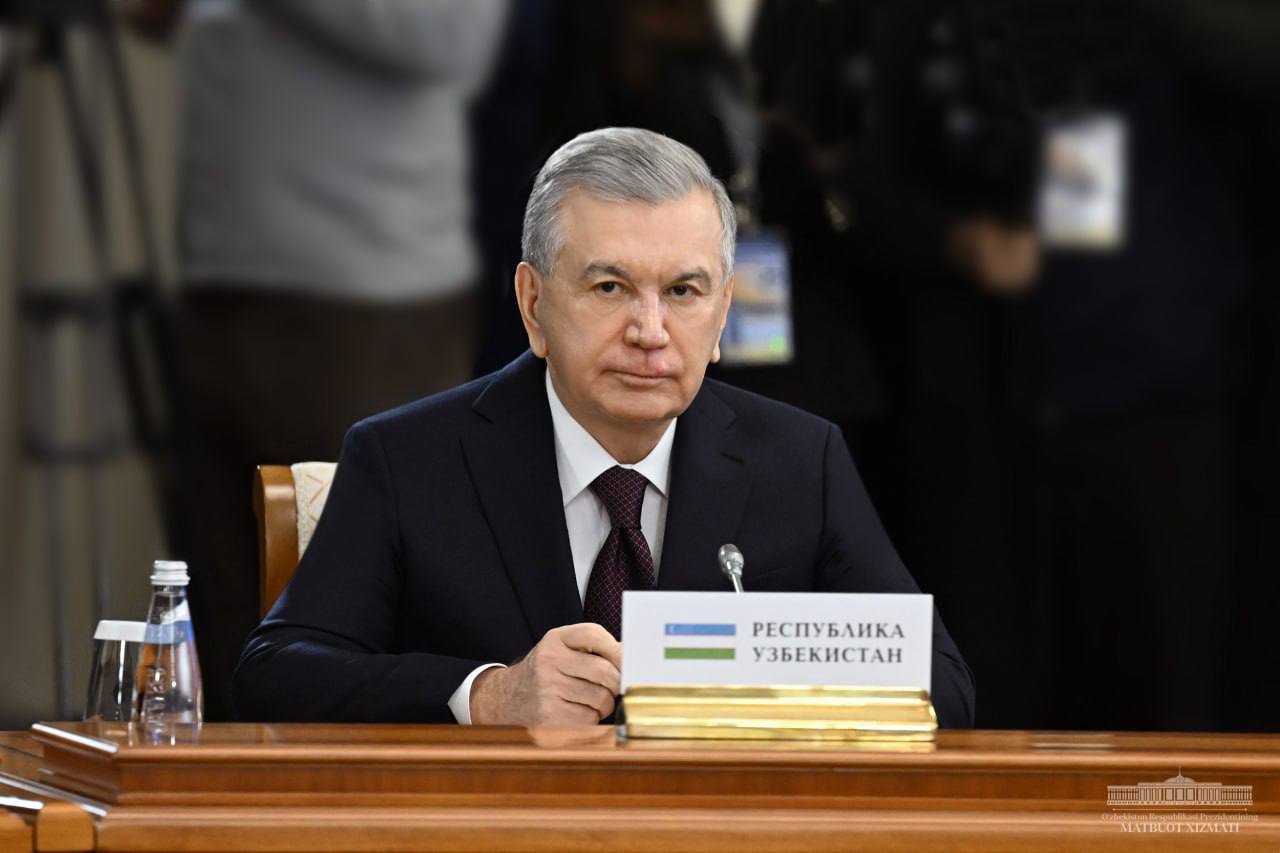BAKU, Azerbaijan, October 9. On October 10, Dushanbe will host a meeting of the Council of Heads of State of the Commonwealth of Independent States (CIS), which is expected to become a major event in regional politics. Amid a changing international environment, the CIS summit is viewed as an opportunity to strengthen partnerships and develop new initiatives. Against this backdrop, special attention is drawn to Uzbekistan – a country that in recent years has become one of the main sources of practical initiatives aimed at improving the effectiveness of cooperation within the Commonwealth.
Tashkent takes an active position on all key areas of interaction – from trade and investment to transport and humanitarian exchange. Uzbekistan advocates for the creation of alternative trade and logistics routes, the establishment of shorter and more efficient value chains, maximum use of the complementary potential of CIS economies, and active promotion of business contacts. This approach reflects the country’s broader course toward openness and mutual benefit, as well as its desire to strengthen the region’s economic resilience amid global transformations.
As a result of policies aimed at deepening integration, Uzbekistan’s trade turnover with CIS countries has nearly doubled over the past five years, exceeding $23 billion in 2024. This is the outcome of large-scale efforts to expand cooperation, particularly in sectors such as engineering, energy, chemical production, pharmaceuticals, and textiles. To stimulate interregional trade, more than 130 special economic zones are operating in the country, cross-border trade zones are being created, and around 6,000 regional bilateral agreements are in force among CIS member states. All these measures contribute not only to trade growth but also to the formation of stable regional production chains.
At the upcoming meeting in Dushanbe, Uzbekistan is expected to once again emphasize the importance of removing barriers to mutual trade. Tashkent consistently calls for the complete abolition of existing exemptions from the CIS free trade regime, which would create equal conditions for producers, improve export transparency, and strengthen mutual trust.
“It is necessary to take effective measures to promptly eliminate barriers to mutual trade. We have discussed this issue many times. The time has come for practical action. Uzbekistan is ready to completely lift existing exemptions from the CIS free trade regime,” said President Shavkat Mirziyoyev at the 2022 CIS Heads of State Council meeting.
A key area in which Uzbekistan plays a leading role remains the development of transport and logistics connectivity. Tashkent promotes the idea of transforming the CIS into a vital link between Europe, the Middle East, and South Asia. In this context, particular attention is given to implementing strategic infrastructure projects such as the China–Kyrgyzstan–Uzbekistan and Termez–Mazar-i-Sharif–Kabul–Peshawar railways, which could fundamentally reshape the map of the region’s transit routes.
The China–Kyrgyzstan–Uzbekistan railway, which will connect East and Central Asia with access to the South through the Trans-Afghan corridor, is set to become the shortest overland route from China to Central and South Asia. According to forecasts, annual cargo transit along this line could generate up to $200 million in revenue for Uzbekistan. Moreover, delivery times will be reduced from 45–70 days to just several weeks, significantly cutting business costs and boosting the competitiveness of Uzbek and regional goods in foreign markets.
No less important is the Termez–Mazar-i-Sharif–Kabul–Peshawar project, which will provide direct access to Indian Ocean ports and open new opportunities for entering South Asian markets. Together with other existing lines, these routes form the basis of a new CIS transport map focused on developing multimodal corridors and digitalizing logistics.
Alongside infrastructure, food security remains a key area for Tashkent. Amid global food shortages, supply disruptions, and climate challenges, CIS countries face the urgent need to develop coordinated measures. Uzbekistan has proposed creating a mechanism to harmonize annual quotas for guaranteed deliveries of essential food products — a move that would help stabilize markets and curb inflation.
“In recent years, disruptions in the supply of seeds, grain, and fuel in different parts of the world have created serious risks for food security. Under such conditions, close cooperation among CIS countries in the agricultural sector — through mutual supplies, technology exchange, and coordinated actions — can become the key to ensuring the region’s food independence,” said Uzbekistan’s Deputy Minister of Agriculture Alisher Shukurov.
Humanitarian and innovation cooperation also remain at the center of Uzbekistan’s regional policy. Tashkent actively promotes joint projects in science, education, and culture. Festivals, academic exchanges, student programs, and cultural initiatives contribute to strengthening people-to-people ties and mutual understanding — a foundation of trust no less important than economic integration.
Uzbekistan’s active position largely shapes the overall agenda of cooperation within the CIS. These initiatives — focused on trade, transport, innovation, and humanitarian exchange — form the backbone of the Commonwealth’s renewal. In this context, the upcoming Dushanbe meeting takes on particular significance, as it is expected to introduce a new “CIS+” format.
This step reflects the desire of member states to move toward more open and flexible cooperation, establishing connections not only within the CIS but also with other international organizations — including the SCO, EAEU, ECO, and BRICS. The new format will open up additional opportunities for expanding economic ties, technology exchange, and joint infrastructure projects. For Uzbekistan, it represents a chance to further advance its transport and energy initiatives and strengthen coordination on sustainable development issues.
In addition, a number of practical documents are expected to be adopted, including programs on strengthening border security at the CIS’s external borders for 2026–2030, countering terrorism and extremism for 2026–2028, a military cooperation concept up to 2030, and a declaration on energy security cooperation.
The upcoming CIS Heads of State Council meeting could go beyond formal statements and become a turning point for redefining the Commonwealth’s role in new global realities. For Uzbekistan, it is an opportunity to reaffirm its leadership in economic integration, transport, innovation, and the humanitarian sphere. And it is precisely the kind of initiatives proposed by Tashkent that can give the CIS new momentum and turn it into an effective platform for the shared development of the region’s countries.







